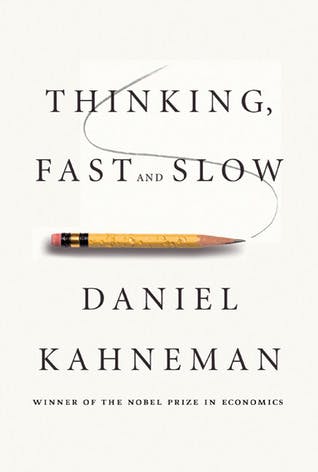Thinking, Fast and Slow Summary
Key Takeaways
- Understanding the two thought systems can improve decision-making and awareness of bias.
- Emotions significantly influence our decisions, often without our conscious awareness.
- Slow thinking is more reliable but requires effort and can be lazy if not engaged properly.
- Heuristics, while useful, can lead to systematic errors in thinking and decision-making.
- Awareness of these cognitive biases can reduce errors and improve personal and professional outcomes.
🌿 ReflectBay
Overthinking again?
You're not too much. You're just overwhelmed and it's okay. We help you untangle the noise and feel calmer.
We'll help you...
Summary
In 'Thinking, Fast and Slow', Daniel Kahneman introduces a dual-system theory that describes how our minds operate. System 1 is fast, instinctive, and emotional; System 2 is slower, more deliberate, and logical. Kahneman explores how these systems influence our behavior, often in hidden ways.
Through a series of engaging narratives and experiments, Kahneman shows how our minds are tripped up by error and prejudice (even when we think we are being logical). The book reveals the extraordinary capabilities—and also the faults and biases—of fast thinking, and the pervasive influence of intuitive impressions on our thoughts and behavior.
The central thesis is that our everyday decisions are not as reliable as we may believe. For instance, simple cognitive biases like the 'anchoring effect' or 'availability heuristic' can easily sway our judgments. Kahneman discusses how we can identify and mitigate these biases to make better decisions.
Ultimately, 'Thinking, Fast and Slow' challenges the reader to think about thinking. Kahneman offers practical insights into how to harness the strengths and recognize the limitations of different ways of thinking, fostering richer understanding and smarter decision-making.
Also recommended

The Defining Decade: Why Your Twenties Matter—And How to Make the Most of Them Now
Meg Jay
The Art of Thinking Clearly
Rolf Dobelli
